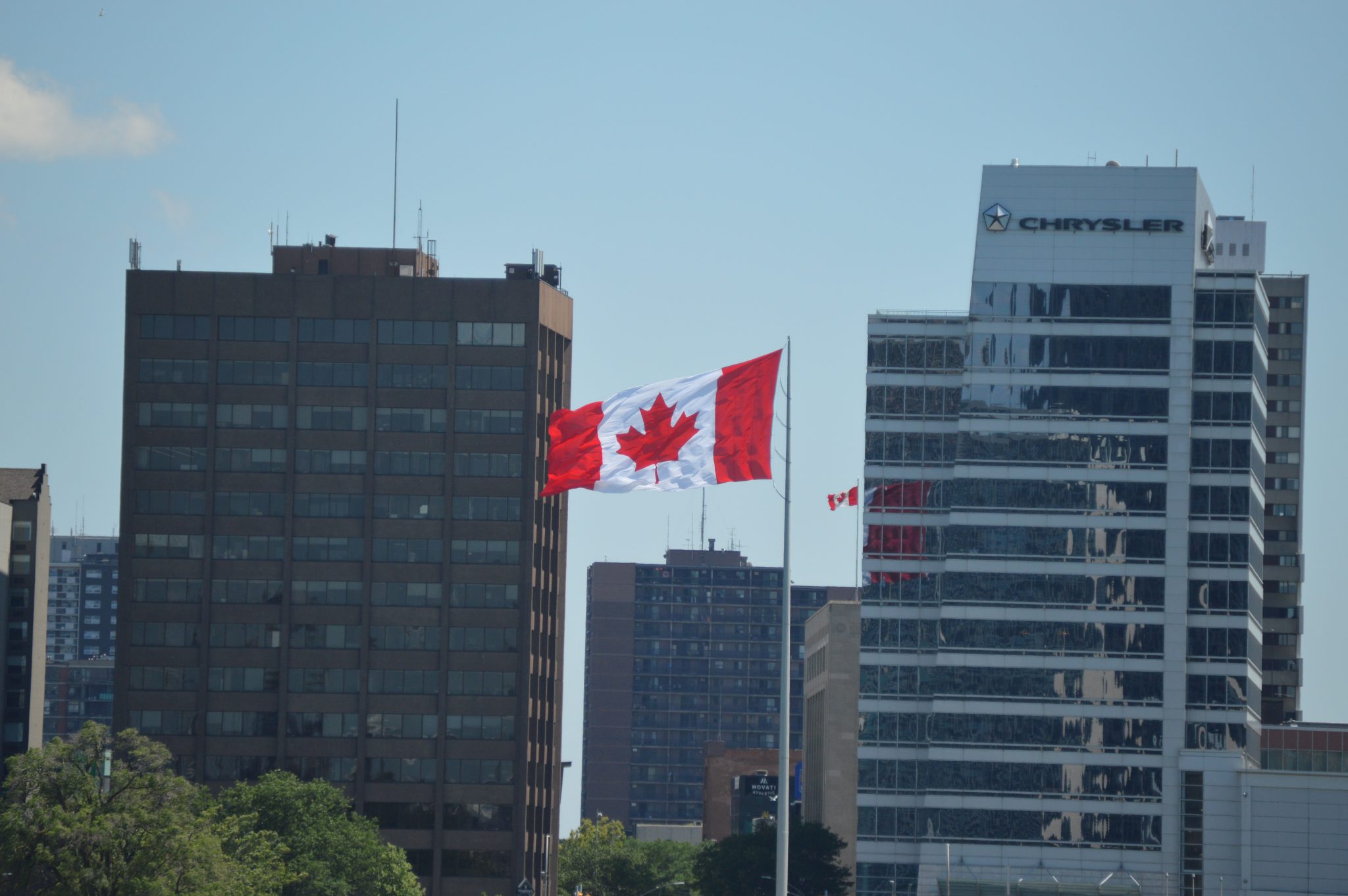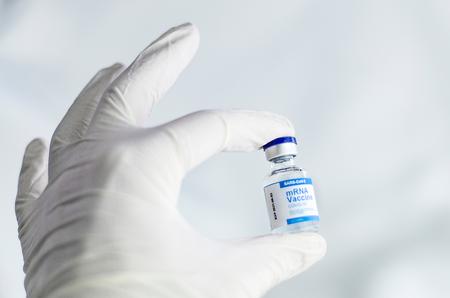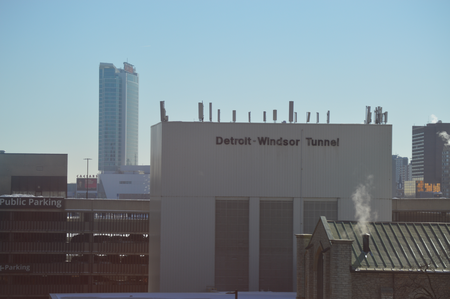Canada’s Pitch to Make the Detroit-Windsor Tunnel a Mass Vaccination Site
Windsor Mayor Drew Dilkens wants Canadians to access coronavirus vaccines that are otherwise going unused in Michigan.

The Detroit-Windsor Tunnel could become a mass vaccination site as Canadian officials work to access surplus coronavirus shots in the United States. The Windsor-Detroit Tunnel Corporation unanimously approved measures on Wednesday to close the international border crossing for the effort.

Windsor Mayor Drew Dilkens pitched repurposing the tunnel as a vaccine site to address the lack of availability Canadians have to the shots by accessing vaccines that are going unused stateside. He estimates about 1,200 Windsor residents cross into Detroit every day as essential workers mainly working in health care.
“They were there when Michigan was a hot spot early on in the pandemic. They were there when Michigan had a flare-up as the worst COVID state in the nation just a few months ago,” said Dilkens. “They’re the ones contacting us saying, ‘Listen, we’re seeing things here that just makes us concerned with respect to supply and demand mismatch of vaccines and the fact that some are hitting the trash. They’re expiring.’”
Vaccine demand in Michigan has dropped in recent weeks, as about 40% of the state has become fully inoculated. While more than half of Canada has received one dose of the shot against the coronavirus, less than 6% of the country is fully vaccinated. Ontario recently expanded eligibility for adults 80 years and older to get the second dose, as most businesses remained closed under the provincial government’s lockdown orders.
Canada and the U.S. have limited movement between the countries during the pandemic, and vaccine appointments are not considered “essential travel.”
The Windsor-Detroit Tunnel Corporation also approved measures to paint a line at the border to circumvent customs regulations. Canadians seeking American vaccines would not be subject to the country’s two-week mandatory quarantine period, and U.S. pharmacists would be allowed to administer the shots without crossing international lines. The mayor’s office says Windsor already has a 6,000-person waitlist for such a program.
“If I can’t find a reasonable pathway for a transfer, then fine,” Dilkens said. “We’ll get a Michigan pharmacist to come down to the center line of the tunnel, we’ll have the Canadians come down and stand on our side, and she can reach across and vaccinate Canadians one by one.”
“When I’m contacted by people in my community who live here but work in Detroit, and they tell me that they’re throwing doses in the garbage, and they want to get them over to us, that is a call to action for me.” –Drew Dilkens, Mayor of Windsor
Officials in the U.S. and Michigan have not indicated if they would meet Canadian public health officials in the middle. WDET’s request for comment by Gov. Gretchen Whitmer’s office and U.S. Customs and Border Protection went unanswered.
But Dilkens said international cooperation to address Canada’s lack of vaccines is already underway in provinces like Alberta, which has arranged a vaccine partnership at the Piegan-Carway border crossing in Montana.
“One has to actually go past U.S. Customs and be admitted to the United States to go 100 yards forward in their car to the vaccination site where they’re getting injected with their second dose and then coming back to Canada,” Dilkens said. “They found the pathway for it to work there, and we’re simply saying work with us to do the same thing.”
Listen: Mayor Drew Dilkens talks about implementing the vaccine site at the Detroit-Windsor Tunnel.
WDET’s Eli Newman spoke with Mayor Drew Dilkens to talk about the plan. Read excerpts, edited for clarity, below:
Newman: Mayor Dilkens, I’m hoping that you might be able to explain this paradigm, that so many Canadians are vaccinated, at least in part, but that second dose is what’s holding things up. Why is that the case?
Dilkens: In Canada, we just don’t have enough supply. And because we don’t have enough supply, we’ve had to extend the duration between the first and second shot. In Canada, they’ve extended the duration between your first shot and your second shot to four months. Whereas if you were in Detroit and you had a Pfizer shot three weeks later, you’re going back for your second one. What that’s done is you have a lot of elderly folks who have received their first dose, who went home, and they are afraid to leave their house. They’re not fully vaccinated, and more importantly, they don’t want to miss the phone call. They’re afraid the phone is going to ring, and they’re not going to be there to receive the appointment date for their second dose.
As I understand it, Ontario has fairly strict restriction protocols whenever there’s a coronavirus outbreak. When it comes to the reopening of normal life activities, how much is that tied to the actual vaccination rate or the full vaccination rate of the country?
Today, we are in lockdown in Ontario. Restaurants are closed except for takeout. Any regular store is pretty much closed here. The casino has been closed for more than a year. Big-box retailers are open with strict capacity limits, and any community center, area pool, all of those are closed down. We are in lockdown, and the new framework that has come out from the province of Ontario talks about a three-stage reopening. Each stage is dependent upon hitting vaccination targets.
Clearly, there is this great need for vaccines in Windsor, but why is the Detroit-Windsor Tunnel the site for this idea to get more shots into people’s arms?
Well, listen, it is not the optimal location. I will be the first to say that the most practical pathway is for the state of Michigan, through some of these pharmacies and hospitals that have surplus doses, many of which are set to expire, to transfer them to us through the hospital transfer program that we have in place. That would be the easiest pathway for everybody involved. But that has not been approved, and so that’s led us to try and find other alternatives.

The Windsor-Detroit Tunnel is also very unique in that the city of Windsor and the city of Detroit, each on our respective halves of that operation. And so we’re able to do things because of our ownership that allows us to be a little creative. We said let’s paint a line in the tunnel on the boundary line demarking the border between the United States and Canada so that everyone visually can see who’s on which side of the border, depending on what side of the line you’re standing.
The prospect here is if I can’t get reasonable people to come up with reasonable pathways to have some of this vaccine that is being offered to us by folks in Michigan, vaccine that is set to expire and it’s going to hit the landfill when you have people here who are desperate for it. If I can’t find a reasonable pathway for a transfer, then fine, we’ll get a Michigan pharmacist to come down to the center line of the tunnel. We’ll have the Canadians come down and stand on our side, and she can reach her arm across and vaccinate Canadians one by one. It’s somewhat preposterous, but at the same time, it would work. When Canadians go back to the top of the tunnel plaza, they haven’t officially entered the United States, so they wouldn’t be subject to a mandatory two-week quarantine, and the Michigan pharmacist can certainly follow all the licensing rules that he or she has to follow as a result of administering the vaccine.
“The objective is to find a pathway where every level of government can have some comfort that we’re all doing the right thing.” –Drew Dilkens, Mayor of Windsor
For this idea to work, officials in Michigan quite literally have to meet you in the middle to get these vaccines into the arms of your citizens. What has been the communication with people like the governor of Michigan, with federal officials? There’s clearly a lot of moving parts to an idea like this.
There are a lot of moving parts. If you can just get to the people, and you talk to the people who can make this happen, they really want to make it happen. They get that we’re not trying to put a man on the moon here. We’re simply trying to put a vaccine in the arm. The problem is you have politics that come into play and politics at multiple levels for multiple different reasons. And it’s on full display.
Then you add elements like the Line 5 issue. The discourse on that topic being will the governor help Canadians because there’s a disagreement over Line 5? Canadians don’t have a disagreement with the governor of the state of Michigan. We love our neighbors in Michigan. We’re friends and neighbors. We have been for hundreds of years. We have to set the politics aside, at all levels, to look at the human side of this.
At the end of the day, I’m apolitical; as a mayor, I’m not a member of any party. It’s different than in the U.S. My goal is to help our population. When I’m contacted by people in my community who live here but work in Detroit, and they tell me that they’re throwing doses in the garbage, and they want to get them over to us, that is a call to action for me.
What is the next step? Who is responsible to actually make an idea like this happen?
We have set up a waitlist for people in our community who are interested in receiving their second dose of Pfizer from a Michigan source. Over 6,000 people have now signed up in the course of just a few days. That is a good sign of the demand that exists just in our city alone, and we have to work with the pharmacists on the U.S. side to be able to enroll people and get the doses properly drawn, coordinate the closure of the tunnel, and of course work with U.S. Customs and Border Protection and the Canada Border Services Agency, to make sure that everyone’s aware.
We’re not trying to do this under the cloak of darkness and trying to sneak one in here. That’s not the objective. The objective is to find a pathway where every level of government can have some comfort that we’re all doing the right thing, and they’re not bending any of the rules that have been put in place so that we can accomplish our shared goal, which is to vaccinate the population.
Trusted, accurate, up-to-date
WDET is here to keep you informed on essential information, news and resources related to COVID-19.
This is a stressful, insecure time for many. So it’s more important than ever for you, our listeners and readers, who are able to donate to keep supporting WDET’s mission. Please make a gift today.
